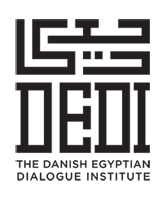Kwame Anthony Appiah - American Pen President

Appiah has taught philosophy and African-American studies at the University of Ghana, Drexel, Cornell, Yale, Harvard, and Princeton Universities from 1981 to 1986. He is currently Laurance S. Rockefeller University Professor of Philosophy at Princeton (with a cross-appointment at the University Center for Human Values) and was serving as the Bacon-Kilkenny Professor of Law at Fordham University in the fall of 2008. Appiah also served on the board of PEN American Center and was on a panel of judges for the PEN/Newman's Own First Amendment Award. He has taught at Yale, Cornell, Duke, and Harvard universities and lectured at many other institutions in the US, Germany, Ghana and South Africa, and Paris. He lives with his partner, Henry Finder,[2] in an apartment in Chelsea, Manhattan and a home in Pennington, New Jersey.[3]
His Cambridge dissertation explored the foundations of probabilistic semantics. In 1992, Appiah published In My Father's House, which won the Herskovitz Prize for African Studies inEnglish. Among his later books are Colour Conscious (with Amy Gutmann), The Ethics of Identity (2005), and Cosmopolitanism: Ethics in a World of Strangers (2006). He has been a close collaborator with Henry Louis Gates Jr., together with whom he is an editor for The New Yorker Magazine. He was elected a Fellow of the American Academy of Arts and Sciencesin 1995.[4]
In 2008, Appiah published Experiments in Ethics, in which he reviews the relevance of empirical research to ethical theory.
In 2008, Appiah was recognized for his contributions to racial, ethnic, and religious relations when Brandeis University awarded him the first Joseph B. and Toby Glitter Prize.
Until the fall of 2009, he served as a trustee of Ashesi University College in Accra, Ghana. Here, Appiah conducts his Socratic interrogations in the language and style of analytical philosophy.
Appiah was the 2009 finalist in the arts and humanities for the Eugene R. Gannon Award for the Continued Pursuit of Human Advancement.[5]
His first novel, Avenging Angel, set at the University of Cambridge, involved a murder among the Cambridge Apostles, Sir Patrick Scott is the detective in the novel . His second and third novels are Nobody Likes Letitia and Another Death in Venice.
The selections "Making Conversation" and "The Primacy of Practice" are the introduction in Cosmopolitanism.
In 2010, he was named by Foreign Policy magazine to its list of top global thinkers.[6]












 Doris Poklekowski.jpg)












